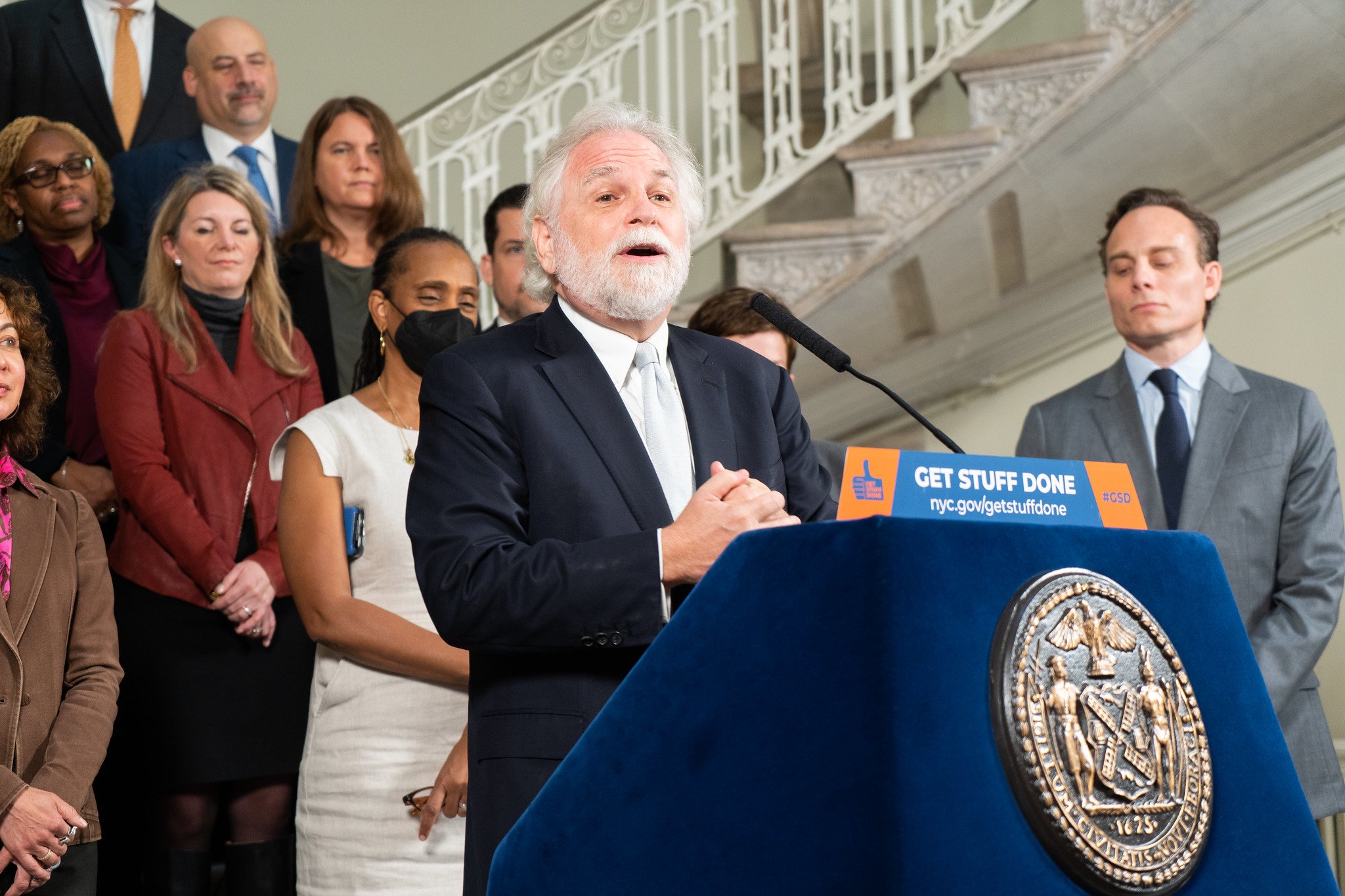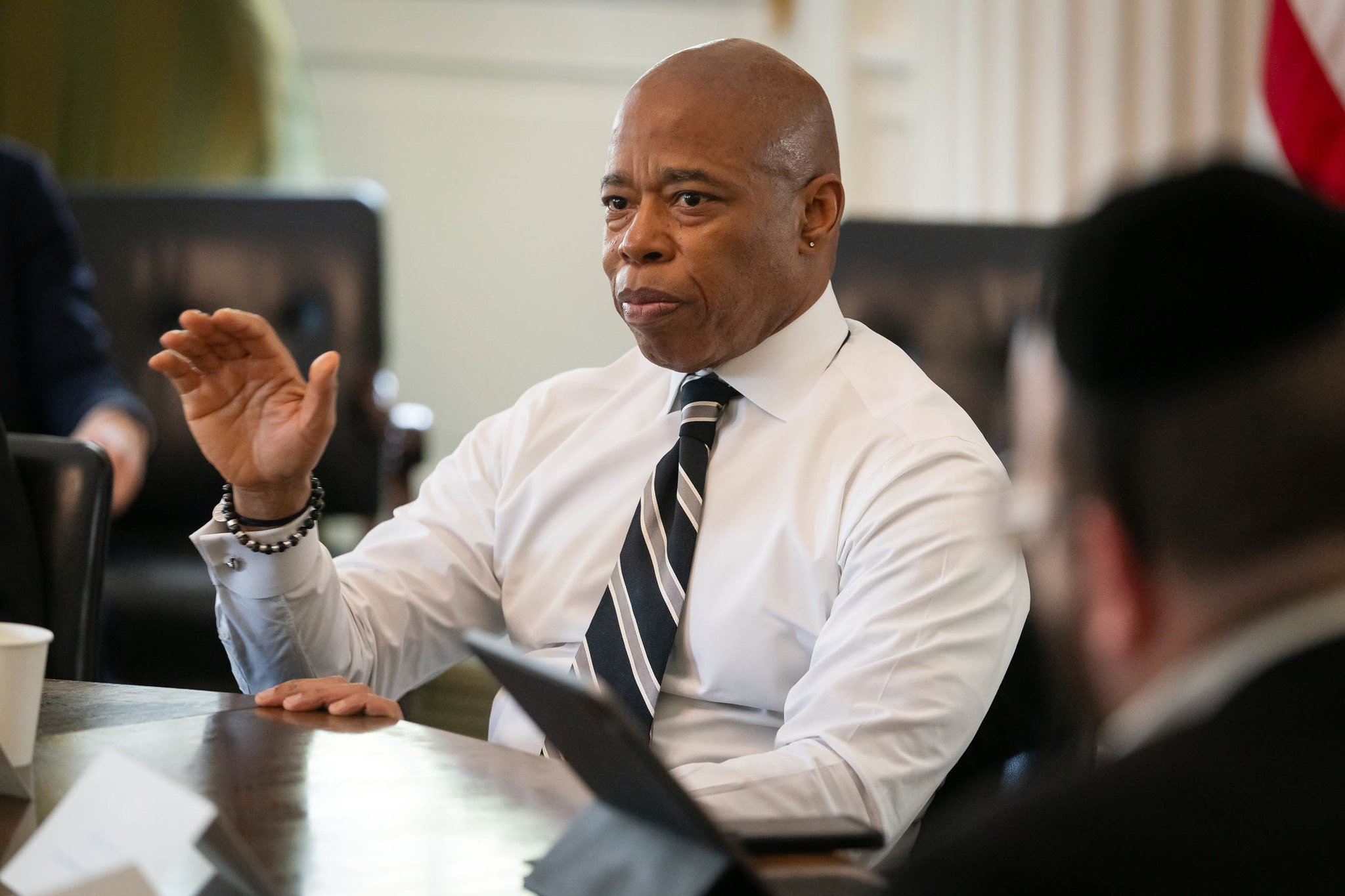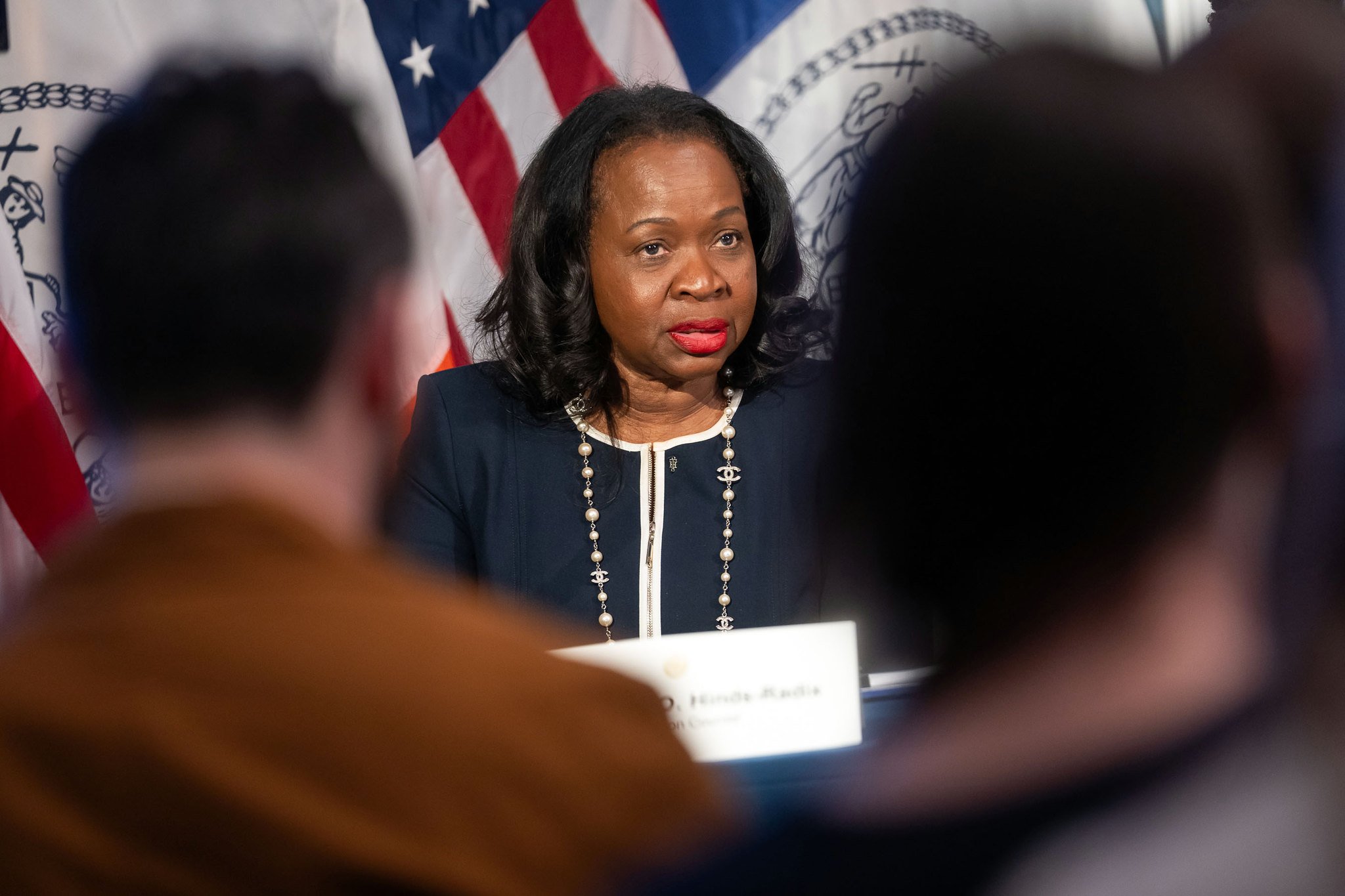‘Slippery slope’: Mayor defends potential corp counsel pick as Council vows to reject nominee
/Randy Mastro, the mayor’s potential pick for the city’s next corporation counsel. Mayor Eric Adams defended Mastro on Tuesday as a number of city councilmembers have vowed to fight his nomination, should he be picked by the Adams administration for the job. File photo by Caroline Willis/Mayoral Photo Office
By Jacob Kaye
Mayor Eric Adams wouldn’t confirm or deny Tuesday if he plans to nominate attorney Randy Mastro to serve as the city’s next top attorney – but that didn’t stop the mayor from defending the embattled potential nominee.
Though Adams has yet to say whether he will nominate Mastro to serve as the city’s corporation counsel – he’s also refused to say that he won’t be nominating Mastro – he and his chief counsel spent at least 15 minutes defending the former deputy mayor’s record during the mayor’s weekly “off-topic” press conference on Tuesday.
Mastro, a former federal prosecutor, and deputy mayor and chief of staff under former Mayor Rudy Giuliani, is widely expected to be nominated by the Adams administration for the role soon to be vacated by current Corporation Counsel c.
Not long before Tuesday’s press conference, the City Council’s Black, Latino and Asian Caucus said in a statement that they would strongly oppose Mastro’s nomination, citing several of his past cases and clients. The opposition from the 34-member caucus would make Mastro’s approval by the 51-member Council, who would have to confirm any nomination for corporation counsel, dubious at best. A number of progressive councilmembers have also in recent days vowed to block Mastro’s nomination, should the Adams administration go in that direction.
But Adams and his chief counsel, Lisa Zornberg, were quick to defend Mastro on Tuesday.
“To go after an attorney based on the cases they represent is a slippery slope,” the mayor said.
Zornberg, who serves as counsel to the mayor, City Hall and a number of mayoral agencies, ticked off a number of pro bono cases Mastro had taken on during his career, as well as his achievements in the nonprofit and civic worlds.
At one point, Zornberg drew parallels between Mastro and John Adams, the second president of the United States who, as an attorney, defended the British soldiers who killed five people during the Boston Massacre.
“[President Adams] didn't hesitate to take on that case, because he believed in upholding the rule of law,” Zornberg said. “That is what makes the United States spectacular – our credible justice system.”
Mayor Eric Adams defended potential corporation counsel nominee Randy Mastro on Tuesday. File photo by Ed Reed/Mayoral Photography Office
After serving in the Giuliani administration, Mastro has taken on a number of controversial cases.
He served as an attorney to former New Jersey Governor Chris Christie and conducted an internal review of the “Bridgegate” scandal, during which Christie’s administration was accused of colluding to create traffic troubles in Fort Lee by closing the toll area in front of the upper level of the George Washington Bridge in an attempt to wound a political foe.
Mastro also represented Chevron on behalf of law firm Gibson Dunn, where he formerly worked. The attorney helped get Chevron off the hook for a $9 billion judgment by the Ecuadorian government in an historic pollution case. He later represented the company as they pursued a RICO case against Steven Donziger, the attorney who originally brought the suit against Chevron. After spending nearly three years under house arrest as a result of the case, Donziger was disbarred in New York State.
Mastro has also represented a number of clients that have brought cases against the city, including the state of New Jersey in its ongoing suit over the state’s plan to implement congestion pricing in Manhattan.
He currently works for King & Spalding.
In a statement on Tuesday, the Black, Latino and Asian Caucus, which includes 10 of Queens’ 15 councilmembers, called Mastro’s nomination as corporation counsel “an affront to the principles of public service we all hold dear.”
“Given his professional track record representing dubious clients, which has included bringing numerous lawsuits against the City of New York, Mastro is unfit to serve as the City’s chief lawyer,” the caucus said, adding that they felt his nomination was “questionable at best” and “deeply concerning.”
Noting that as corporation counsel Mastro would also be representing the City Council in court, the caucus said it “deserve[d] better than someone who has fought for the interests of top-earners, abusive corporations, and vindictive politicians.”
New York City Corporation Counsel Sylvia Hinds-Radix, who is expected to depart the administration soon. File photo by Ed Reed/Mayoral Photography Office
“The BLAC is firm in its opposition to this potential nomination,” the lawmakers added. “We ask the administration to reconsider its position.”
In response to the caucus’ statement on Tuesday, the mayor said that he’d hope the Council would hear out any potential nominee, and judge them based on their responses to questioning, rather than just their resume.
“I'm hoping that anyone we put up for any nomination, they have an opportunity to sell their story, let them know their real story, not what was printed about them,” the mayor said. “I think it is very healthy for people to be able to sit down and be able to say, ‘We're willing to answer questions.’”
Though the administration has confirmed that Hinds-Radix is on her way out of the top attorney role, they’ve been hushed about the reasons behind her departure, when it will be official and when a new nominee will be put forward.
Multiple outlets have reported that Hinds-Radix’s opinions on a number of the high-profile cases brought against the city and the mayor over the past two years have differed from those held by administration, leading to clashes over the right defense.
On Tuesday, the New York Post reported that the former judge had raised objections over the Law Department’s representation of Adams in a sexual assault lawsuit brought against him and was later asked by City Hall to resign.
When asked on Tuesday about why the mayor may prefer Mastro to Hinds-Radix, the mayor said he would “let everyone know…when we roll out and make our announcement official.”
But the mayor also called Hinds-Radix a “longtime friend.”
“There is no disagreement,” Adams said. “All of us are dealing with these issues that we're facing, and we're all doing the best we can to make them happen.”






